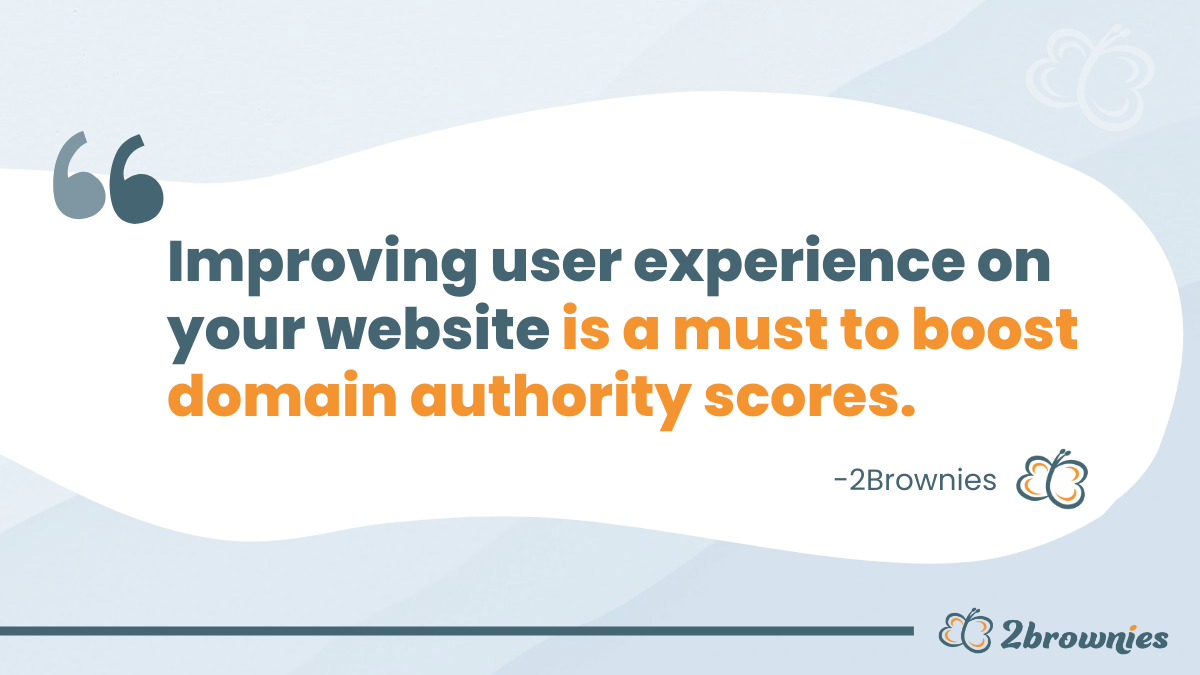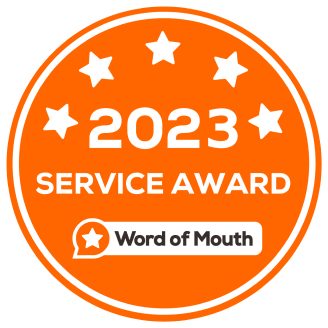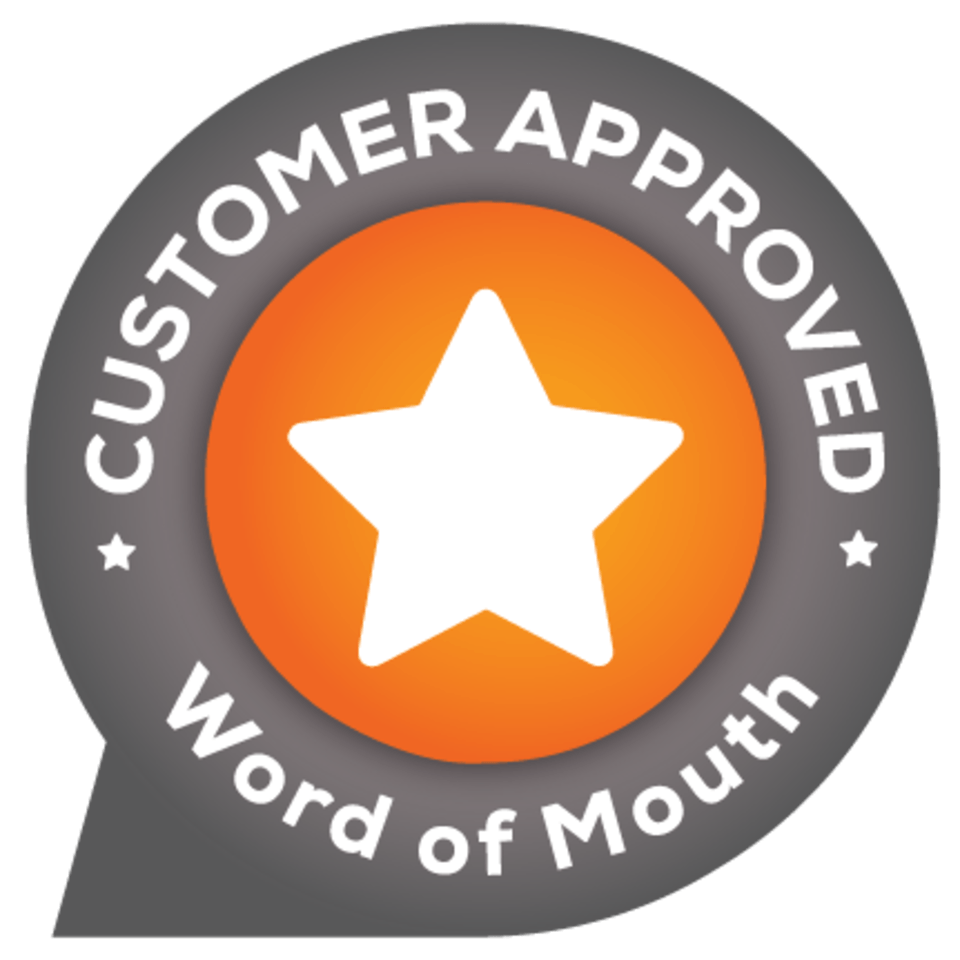
Understanding Domain Authority: An Explanation For Beginners
If you're aiming to enhance your website's search engine positioning, then being familiar with domain authority is essential. Domain authority measures the strength of a website's domain and its ability to rank in search engines.
In this blog post, we'll explore the concept of domain authority and its importance for search engine ranking, as well as discuss how to boost your website's DA score through effective content creation and link building.
By the end of this post, you'll have actionable tips that can help boost your own site’s DA. So let’s get started!
What is Domain Authority?
Domain authority is an important metric for any website. It’s a score from 0 to 100 that measures the strength of a website's domain and its ability to rank in search engine results pages (SERPs).
A higher domain authority means more chances of ranking higher on SERPs, which can lead to increased visibility and more traffic for your site.
At its core, domain authority is determined by several factors such as the age of the domain, number of backlinks pointing to it, quality of content on the page, etc. All these elements combined give you an overall score or rating that helps search engines determine how likely your website will be able to appear at the top when someone searches for related keywords or phrases.
For example, if two websites are competing against each other with similar content but one has a high domain authority while another has low DA, then there’s a good chance that the former will rank higher than the latter. This makes it essential for businesses to take notice of their site's domain authority.
So, to re-cap in simple terms: domain authority is a score that tells you how popular and well-known your website is to other people and other websites.
Why is Domain Authority Important?
Your domain authority affects how well you rank on search engine results pages (SERPs). A higher domain authority score indicates that your website has more potential to be seen by people searching online, which can lead to increased traffic and sales.
Your domain authority score is calculated using various factors such as the number of linking root domains, quality of websites linking back to you, content quality, site structure and other metrics. The higher your DA score is, the better it will be for your business as it means that your website has been recognised by high-authority websites as having valuable content or services.
High domain authority can lead to better visibility and more traffic to your site through higher rankings in search engine results. And the great thing is that it's pretty much in your power to improve your domain authority. So, let's explore what you can do to increase that all important DA number so you can rise in the search engines.
How to Improve Your Domain Authority
To improve your domain authority, start by optimising your content for SEO. This includes using relevant keywords throughout the text, adding alt tags to images, and including internal links within each page on your site.
Improving user experience on your website is a must to boost domain authority scores. This is known as technical SEO and comes down to quick loading times, intuitive navigation, prominent CTAs (calls to action), all of which help boost your DA.

Contact information, plus helpful resources like FAQs or blog posts related to topics users may be searching for are also key elements that can help improve your domain authority over time.
Why Quality Content Matters
Creating high-quality content on your website is one of the most important factors in improving your domain authority. This means producing content that is useful, informative, and relevant to your target audience.
The more high-quality content you have on your website, the more likely it is that other websites will link to it and share it with their audiences. In turn, this can increase your website's visibility and authority in the eyes of search engines, leading to higher search engine rankings and more organic traffic.
However, it's important to remember that quality is more important than quantity. It's better to have a few pieces of excellent content than a lot of low-quality content. So focus on creating high-quality blog posts that provide real value to your audience.
(If you want to pursue a content marketing strategy in order to increase your domain authority and site visits, 2Brownies offers
ultra-high-quality blog post packages just for this purpose).
The Importance of Link Building
Link building is one of the most important factors influencing Domain Authority.
Backlinks are when another site mentions your site and links that mention back to your site. (Learn more with this guide to backlinks for beginners).
Having links from external sources pointing back to your own site helps improve your rankings significantly, as Google sees them as "votes of confidence" from other sites.
When other high-quality websites link back to your website, it signals to search engines that your website is a valuable and trustworthy source of information.
This can improve your website's search engine rankings and increase its visibility. But it's important to focus on building high-quality backlinks from reputable sources only.
Low-quality backlinks or links from spammy websites can actually harm your domain authority and lead to lower search engine rankings. So, make sure to focus on building relationships with other high-quality websites in your industry and creating valuable content that they will want to link to.
How to Check Your Domain Authority
Knowing your website’s domain authority can help you understand how well it will perform in organic searches, as well as what improvements you need to make to increase your ranking.
Typically, new websites will have a DA score of 1 (or close to 1) initially. This is entirely normal as you haven't yet had time to build up a significant backlink profile or establish any authority in your niche. As you add extra quality content to your site and earn quality backlinks, your DA score will increase.
The first step in checking your domain authority is understanding how it is calculated. Domain authority takes into account many different factors:
- the number of linking root domains
- overall site structure
- content quality
- technical SEO such as site speed and more.
All these elements are weighed together and assigned a score between 0-100; this score represents the website’s overall “authority” on the web. Generally speaking, higher scores indicate better rankings while lower scores mean that websites have less influence or visibility online.
There are several tools available that can help you check your own website's DA score quickly and easily. The most popular tool is Moz:
https://moz.com/domain-analysis
Domain Authority scores range from 1 to 100, with higher scores indicating a greater likelihood of ranking well in search engine results pages.
In general, a good Domain Authority score is considered to be above 50, with scores above 60 or 70 being really great. But a reasonable score that could be considered great for a relatively new business with an active website would be 20-30.
However, it's important to keep in mind that the competitiveness of your industry and the strength of your competition's websites can also affect what is considered a "good" score. Ultimately, the goal is to improve your website's Domain Authority over time through high-quality content creation, link building and other SEO strategies.
Common Mistakes When Improving Domain Authority
Improving domain authority can be tricky. It’s easy to make mistakes that can harm your website’s ranking in search engine results and cost you valuable traffic. Here are a few mistakes to avoid:
Not Linking Root Domains:
When building backlinks, it's important to link from root domains rather than individual pages on those sites. A root domain is the top-level part of a website URL (e.g., www.example.com). Linking from an individual page on a site won't have as much impact on your site's domain authority score as linking from the main root domain.
Ignoring Your Site Structure:
The structure of your website is just as important for improving your DA score as external links are, so don't neglect it. Make sure all pages are easily accessible through navigation menus or sitemaps, and that they're properly linked together internally so visitors can find what they need quickly and easily without getting lost in endless loops of broken links or dead ends.
Not Checking Website Content Quality:
High-quality content is essential for increasing your website’s Domain Authority score – if search engines see poor quality content on your site, then this could hurt its reputation and negatively affect its rankings in SERPs (Search Engine Results Pages).
Check regularly for typos, outdated information, low-value keyword stuffing etc., and ensure all content meets the highest standards before publishing.

When approaching websites to link back to yours, shoot for the stars and target high-authority sites such as industry leaders or well-known blogs / forums in your niche. Getting a high DA site in your industry to link back to your website is hitting the jackpot when it comes to SEO. And you never know unless you ask, right? :-)
FAQs in Relation to Domain Authority
Does Domain Authority really matter?
Yes, domain authority does matter. Domain Authority is a crucial element in SEO, impacting the website's ranking on Google's SERP. Domain Authority measures how well a website will rank for certain keywords and phrases, as well as its overall credibility with visitors.
A higher Domain Authority indicates that the site has more influence over search engines, which can lead to better visibility online. Ultimately, having a higher Domain Authority can help your website attract more organic traffic and improve its overall performance.
I'm a Beginner. Explain Domain Authority in Simple Language?
Domain Authority is a score that indicates how well your website will rank in comparison to other websites in the search engines. A higher Domain Authority means better chances of ranking high on SERPs (Search Engine Result Pages). Your DA score can vary from 0-100, with higher numbers suggesting greater trustworthiness and recognition in the eyes of search engine algorithms. When you first publish your site, your domain authority will be close to 1. Anything in the range of 15-30 is great for a relatively new website. Anything above 50 is great for any site, but don't worry if your domain authority is low. You can still rank well. It really depends on your competition and industry.
What is considered a good Domain Authority score?
A good Domain Authority score is generally considered to be anything above 50. This suggests that the website's online presence is strong and its content could be positioned prominently on SERPs. A higher Domain Authority score also means that your website has more chances of being found by potential customers, which can help increase traffic and sales.
But for a new website, you'll start out with a domain authority close to 1. For relatively new sites, a great domain authority score would be anywhere between 15-30. This can be achieved by regularly adding high-quality content to your site and getting quality backlinks from other relevant sites.
What impacts Domain Authority?
Backlink quantity and quality, content relevance, content volume (how much content is on your site), page speed, technical SEO elements such as mobile responsiveness all impact domain authority. High Domain Authority indicates that your website has high visibility in SERPs (Search Engine Result Pages) which can lead to more organic traffic and higher conversions.
Conclusion
Domain Authority is important because it predicts how well a website will rank on search engine results pages. A high Domain Authority score indicates that a website is popular and trustworthy, which can lead to more organic traffic and potential customers. Improving your website's Domain Authority through high-quality content creation and link building can help your business succeed online.
Are you a small business looking to build your reputation and make your mark? We create awesome websites, social media content, blog posts, SEO and Google Business profiles for small businesses across Australia. Call us on 1300 608 114 or book a chat here: https://calendly.com/2brownies/chat. Our General Manager Vanessa would be happy to answer your questions.

About the Author
Our General Manager, Vanessa, has a background as a business consultant and loves to share her experience and perspective with our clients and readers. If you have questions about your own NDIS provider business, chat with Ness anytime on 1300 608 114 or
find Ness on LinkedIn
or follow Ness for NDIS Provider insights on Medium.
Learn more about Vanessa
here.


















